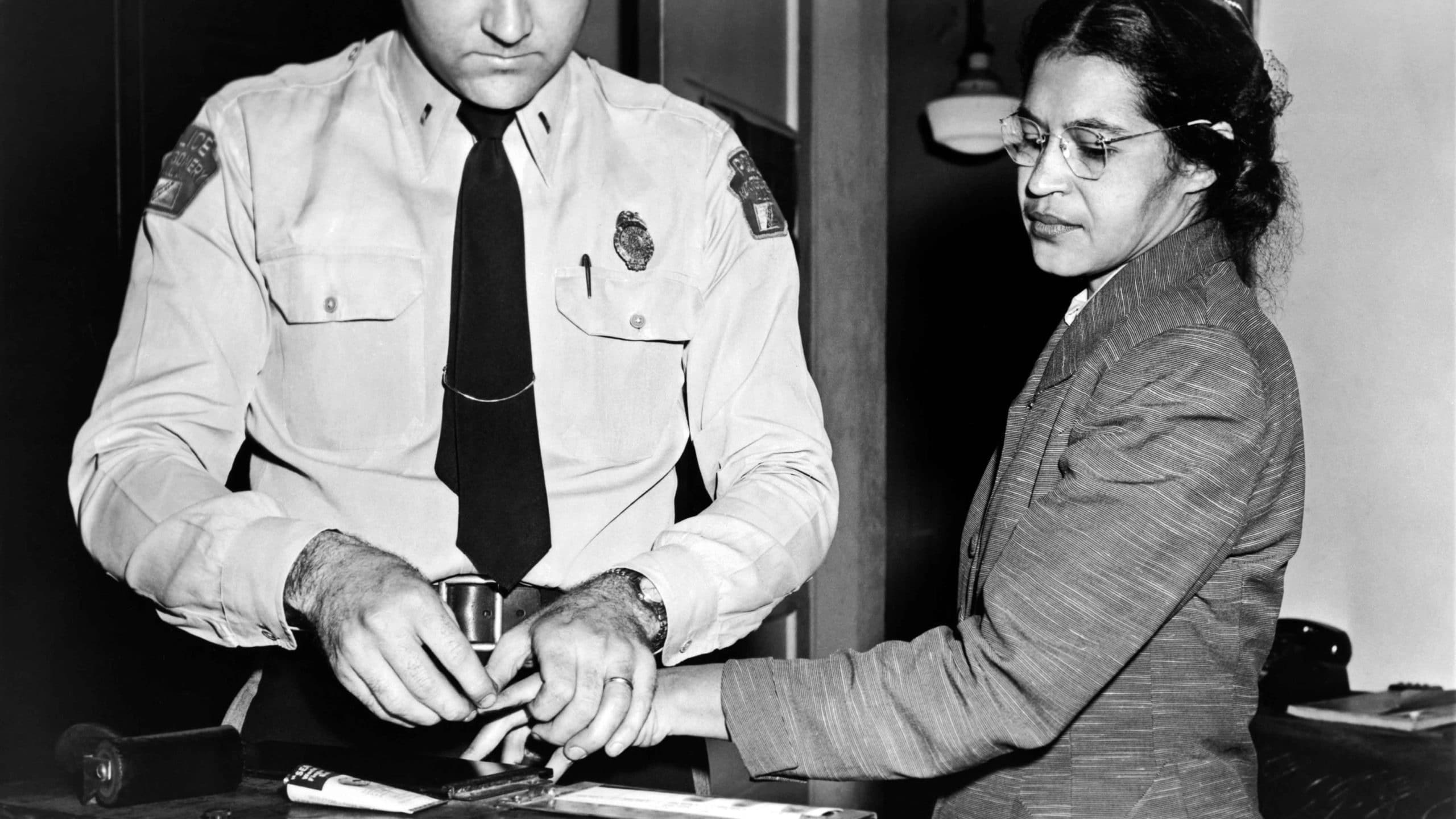
20 Feb, 2021 Rosa Parks Fight Was Peaceful and Powerful
by Angie Camp
Peaceful yet powerful,
That’s how most people see Rosa Parks.
Rosa Parks was an American activist in the civil rights movement. The United States Congress referred to her as “the first lady of civil rights” and “the mother of the freedom movement.” Rosa is best known for her pivotal role in the Montgomery bus boycott, which was sparked by her refusal to give up her seat to a white man on a Montgomery, AL bus. She was peaceful, but very powerful.
Her early years…
Rosa Louise McCaully was born on February 4, 1913, in Tuskegee, AL. At the age of 2, her family moved to Pine Level to live with her mother’s parents. Her brother, Sylvester, was born the same year. Soon after, her parents separated.
At age 11, Rosa moved to Mongomery and eventually attended a laboratory school at the Alabama State Teachers’ College for Negroes. But in the 11th grade, she chose to leave school, to care for her dying grandmother and chronically ill mother.
In 1932, at age 19, Rosa married Raymond Parks. A self-educated man, who worked as a barber, Raymond was a long-time member of the National Association for the Advancement of Colored People (NAACP). He supported Rosa in returning to school to earn her high-school diploma.
Preceding activism…
The couple was well respected in Montgomery’s large African American community. But living under the Jim Crow segregation laws, with dehumanizing restrictions brought daily frustrations. This included separate water fountains and inferior schools.
But against Raymond’s wishes, born out of his concern for her safety, Rosa joined the NAACP chapter in Montgomery. She was later made chapter secretary. Here, she worked closely with E.D. Nixon, a railroad porter known in the city. He was an advocate of black people who wanted to register to vote. This is where Rosa’s peaceful fight would get its wings.
Rosa keeps her seat…
December 1, 1955, after a long day of work, Rosa chose to commute home by bus. Unknowingly, this would be the day of her peaceful fight. According to segregation laws, the front of a bus was reserved for white citizens and the back seats for blacks. Bus drivers had the authority to ask a black person to give up their seat. During Rosa’s commute, there was a white man with no seat. To accommodate him, the bus driver ordered those sitting on the first row of seats in the “black” section to stand. While the others obeyed, Rosa kept her seat. Upon stopping, two police officers approached the bus, assessed the situation, then took Rosa into custody.
However, word of her arrest spread quickly. E.D. Nixon was there when Rosa was released on bail that evening. For years, Nixon had hoped to find a black person of courage and unquestionable character to become the plaintiff in a case against segregation laws. After discussing it with them, the Parks agreed to do it.
But Rosa’s peaceful fight continued, as the black population of Montgomery decided to boycott the buses on the day of Rosa’s trial. 35,000 mimeographed flyers were sent home with black schoolchildren, informing their parents of the planned boycott.
Judgment day…
On December 5, Rosa was found guilty of violating segregation laws. She received a suspended sentence and was fined. Meanwhile, the black participation in the bus boycott exceeded all expectations. They needed to take advantage of the momentum in their peaceful fight. So, Nixon, along with some ministers, formed the Montgomery Improvement Association (MIA). They elected a 26-year-old Reverend new to Montgomery, named Dr. Martin Luther King, Jr.
The cost and reward of activism…
Subsequently, as the appeals and related lawsuits made it all the way to the U.S. Supreme Court, the boycott enraged many in the white community. This insighted acts of violence. Nixon’s and Dr. King’s homes were bombed. Yet the boycotters and their leaders remained undeterred.
Finally, on November 13, 1956, the Supreme Court ruled that bus segregation is unconstitutional. Rosa’s peaceful fight overturned the law. Although the boycott ended on December 20th, the harassment and threats toward Rosa continued. Because of this, she, Raymond, and her mother moved to Detroit, MI, where her brother resided.
However, Rosa’s peaceful fight did not end with the boycott. She became an administrative aide in 1965 for the Detroit office of Congressman John Conyers, Jr. until her retirement in 1977.
Later on, in 1987, she co-founded the Rosa and Raymond Parks Institute for Self-Development, to serve Detroit’s youth. And in 1999, she was awarded the Congressional Medal of Honor…the United States’ highest honor given to a civilian.
Rosa passed away on October 24, 2005. Her peaceful fight on the bus commute that day led to a major victory in the civil rights movement.
The stand Rosa took, by sitting silently, roared.
“So if the Son sets you free, you will be free indeed.”
John 8:36 ESV
Angie Camp is an author, speaker, and Christian Counselor. Aside from being a Mother and Grandmother “Peaches,” her primary focus is walking with women and girls along their journey from brokenness to healing, reminding them that the goal is not merely to survive, but to soar.
Download Our New Counter Culture Mom App to get our trending news and pop culture alert notifications. You can connect with other parents in the Parent Chat section to gain helpful ideas on how to counteract the Pop Culture Cult!
Be sure to contact us if there is an issue you would like to have us write about! Our mission is to help parents deal with today’s lifestyle trends and how to biblically navigate them.





No Comments